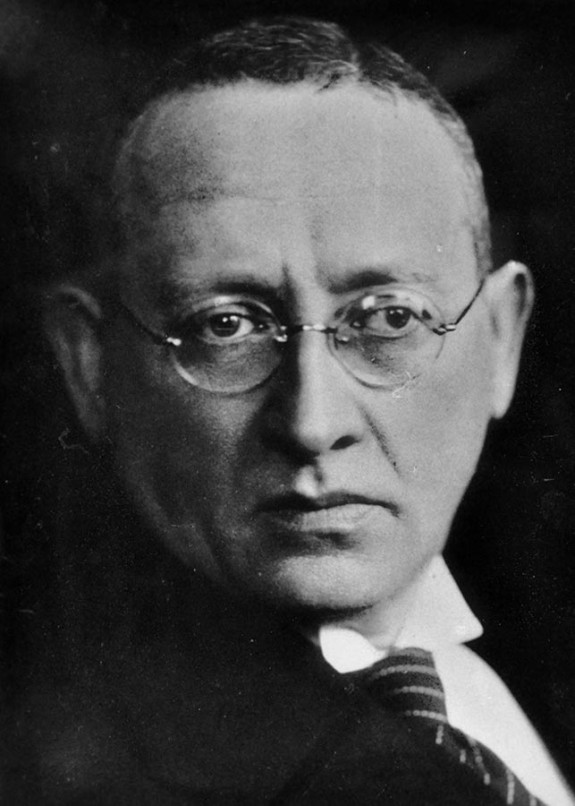Forced to resign
Ernst Perels
- * 2. 8.1882 in Berlin
- ✝ 10.5.1945 im KZ Flossenbürg
Ernst Perels was born into the world of the cultivated 19th-century Berlin bourgeoisie. His father Ferdinand was a converted Jew who, as director of the civil department of the imperial naval office and an honorary professor at the University of Berlin, was a member of the intellectual elite in the German capital. Together with his wife Anna, née Volkmar, Ferdinand Perels had four children named Friederike, Leopold, Ernst, and Kurt.. While Leopold and Kurt followed in the family tradition and became jurists, Ernst dropped his law studies in Munich after just one semester and studied history instead, going first to Freiburg and then to Berlin, where he did his PhD under Michael Tangl, the chief editor of the MGH series Diplomata Karolinorum and Epistolae.
At the age of 21, Ernst Perels met his future wife, Antonie Hermes. One year later, Michael Tangl helped him to find a position at the Monumenta Germaniae Historica where he worked on the letters of the Carolingian Age in a number of editorial projects. Ernst and Antonie married in 1907 and started raising a family. Central aspects of their family life were Evangelical religiosity and theology and the hours they spent playing music together. With the birth of four sons: Otto (1908), Friedrich-Justus (1910), Ulrich (1915), and Hans (1918), Perels’ position at the MGH soon became insufficient to meet their growing needs and they were reliant on monthly support from their grandparents. After completing his post-doctoral qualification, Perels began teaching medieval history and „historische Hilfswissenschaften“ at the University of Berlin in 1911. Four years later, he was granted the title of professor. After serving in the Imperial Naval Office in Kiel during World War I, Ernst Perels returning to academic life and succeeded to the chair of his former professor, Michael Tangl, who died in 1921, as extraordinary professor in 1923. In 1931, Perels received the ordinarius professorship in Berlin and became co-director of the Historical Seminar. This all changed abruptly in 1936 with the enactment of the NS Nuremberg Laws that banned Jews from professional activities, forcing Perels to leave the university on account of his Jewish ancestry.
While most of his other ex-colleagues in the Historical Seminar who had been expelled from their positions for political or racial reasons chose to leave Germany, Ernst Perels decided to stay and continue his research. In the 1930s, inspired by the example of his sons, he turned to the Evangelical "Bekennende Kirche", a Protestant oppositional movement, „whence he drew the spiritual strength to live on“, as his son Otto later recalled (Perels, 1991, p. 14). As a measure of collective punishment for involvment of his son Friedrich-Justus in the assassination attempt on Adolf Hitler on 20 July 1944, Ernst Perels was arrested and emprisoned. He died of exhaustion in the concentration camp Flossenbürg in May 1945, shortly after the allies had freed the camp.
In his notes, Perels expressly laid down that „in casu mortis“ he wished to be remembered as a Christian, a German, and a historian. His Jewish ancestry, by contrast, was not to be mentioned (Perels, 1991, p. 1).
MGH editions
- Epistolae Karolini aevi (IV) (MGH Epp. 6), Berlin 1925
- Die Briefe des Erzbischofs Hinkmar von Reims 1, Epistolae Karolini aevi (VI) (MGH Epp. 8,1), Berlin 1939
- Vorarbeiten zu: Die Briefe des Erzbischofs Hinkmar von Reims 2, Epistolae Karolini aevi (VI), hg. von Rudolf Schieffer (MGH Epp. 8,2), Wiesbaden 2018
Other selected publications
- Ernst Perels, Die kirchlichen Zehnten im karolingischen Reiche, Berlin 1904 - Dissertation
- Ernst Perels, Papst Nikolaus I. und Anastasius Bibliothecarius: ein Beitrag zur Geschichte des Papsttums im neunten Jahrhundert, Berlin 1920
- Ernst Perels, Der Erbreichsplan Heinrichs VI., Berlin 1927
- Bonizo von Sutri, Liber de vita Christiana, hg. von Ernst Perels, Berlin 1930
Reference literature on Ernst Perels



